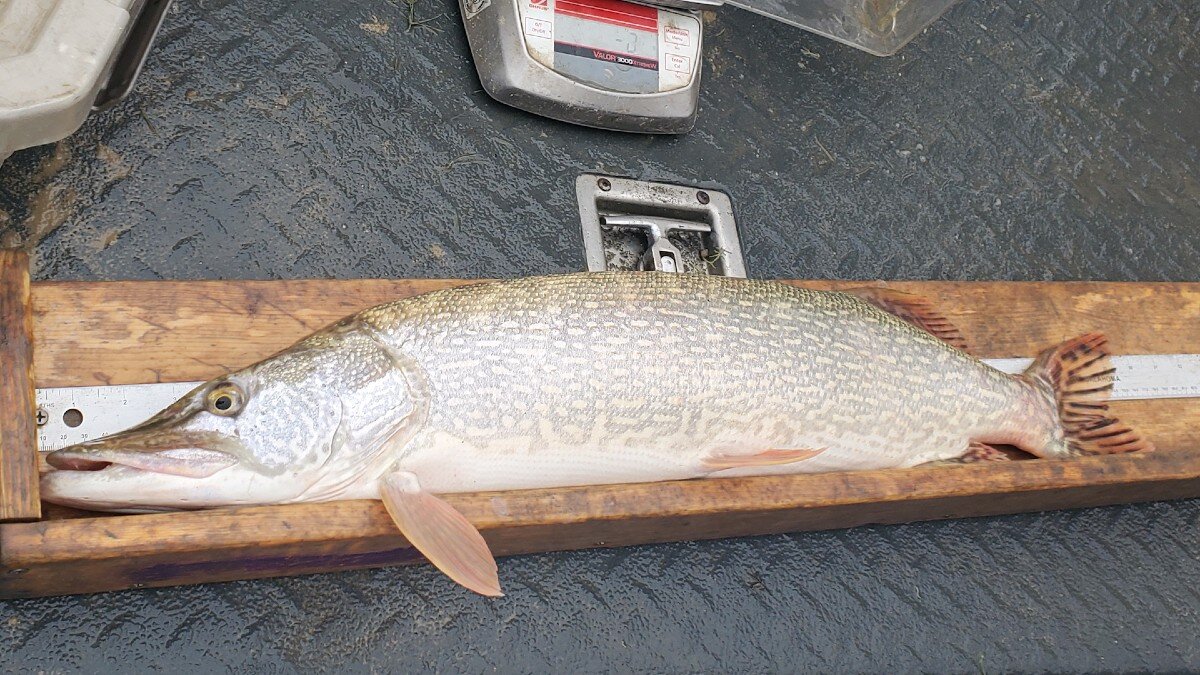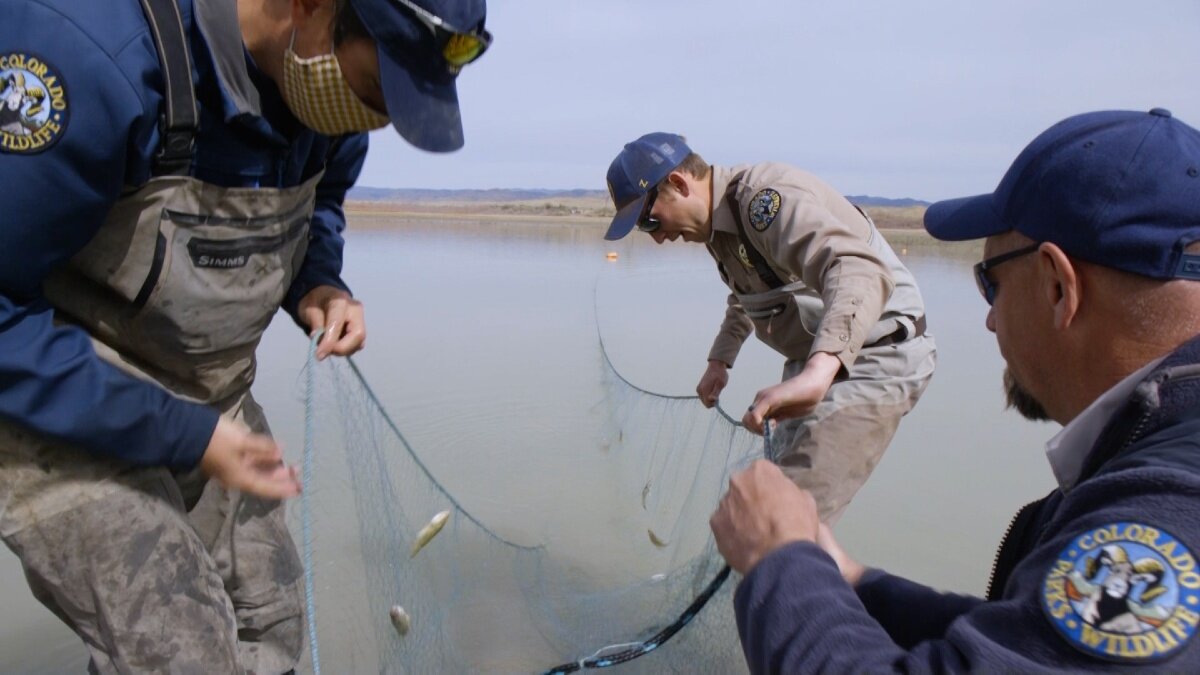Saving the fish: Mack Mesa drained due to predator fish

LOMA, Colo. — Highline Lake State Park is normally a recreation destination for residents of the western slope, and especially for anglers. Home to the smaller Mack Mesa Lake, the park provides an opportunity to experience native and diverse marine wildlife without the fear of large motorboats, wakeboarders stirring up the waters, or other disruptions — until recently.
The discovery of northern pike fish in Mack Mesa Lake has pressured park staff to come up with a solution to protect endangered species from the northern pike, which can be very predatorial when they populate. Northern pike occasionally feed off other fish, floating birds, and even shore bound animals if the mood strikes. They sport large mouths with sharp teeth, making them effective hunters and sometimes dangerous if caught fishing. Long and lengthy, pike can take a long time to grow to larger sizes and are not typically a first choice of food by anglers.
It’s unlikely that the northern pike found its way into Mack Mesa on their own. In a press release, Colorado Parks and Wildlife said “staff suspects that they were illegally transported and released by someone trying to selfishly create a place to catch their own favorite fish.”
“They eat their way through house and home,” said CPW Aquatic Biologist Benjamin Felt. “The northern pike start feeding on northern pike and at that point there’s not much you can do.”
This fish, while aggressive, do have homes in other areas of the state. Blue Mesa, Crawford and Elkhead reservoirs all house northern pike in their waters. The problem is that these fish are not native to Colorado, and often require adequate space to feed without endangering other species. Mack Mesa Lake does not provide anything to naturally keep the pike in-check. All of its native residents are potential food for the pike.

While out checking on fishermen in September of 2020, park manager Alan Martinez was informed that northern pike were spotted in Mack Mesa. Martinez didn't initially believe the anglers because all of the fish in the park are stocked by Colorado Parks and Wildlife, and they do not stock pike. Martinez’s report was soon confirmed by others. Some parks staff even caught the pike themselves. After the initial report came in, CPW found a large 15-pound northern pike in Mack Mesa.
“The fear was that the pike would go into the spring and spawn and we would have a pike fishery here,” said Martinez. “We don’t stock pike here; this is a warm-water fishery.”
It wasn’t until the discovery of younger pike that the staff was convinced the problem had gotten out of hand. Recent captures of the northern pike were much smaller and younger than the first, indicating that they had either begun populating, or there had been another introduction of smaller pike. The threat that the pike would pose to the local fish population was now too high.
When it was decided that draining the lake entirely would be the only way to stop the northern pike from populating and killing off other fish, Aquatic Biologist Benjamin Felt got to work. A large eight-inch, 2,000-gallon-per-minute pump was the tool of choice to drain the lake at a rate of one foot per day, while marine rescue missions took place in efforts to save what was left. Electro-fishing and gill netting were largely successful in capturing fish like largemouth bass, crappie, bluegill, rainbow trout, channel catfish and grass carp for transport to local surrounding waters.

“I don’t think this isn't a situation that any of us really want to be in with Colorado Parks and Wildlife,” said Felt. “It’s using money from license sales to do something like this rather than work that benefits all sportsmen.”
Once the lake is dry and northern pike have been eliminated from the lake, CPW will begin pumping water back into Mack Mesa. The reintroduction of fish could begin as early as mid-May, however, fishing won't be the same for some time. While CPW will stock the lake with its original fish species, numbers will naturally dwindle until fish like trout and bass spawn on their own. Parks staff does plan to introduce adult fish into Mack Mesa, and species like channel catfish could take years to reach the size of those previously found at the lake.
People like Felt have been tied to Mack Mesa to oversee the project, prolonging habitat improvement plans that otherwise would have been taking place at places like Highline Lake. Future incidents involving the introduction of predatory species like the pike could result in the suspension of fishing at Mack Mesa or the end of stocking any fish there, according to CPW. The agency said anyone with information on illegal fish stocking should call their Grand Junction office at 970-255-6100.
